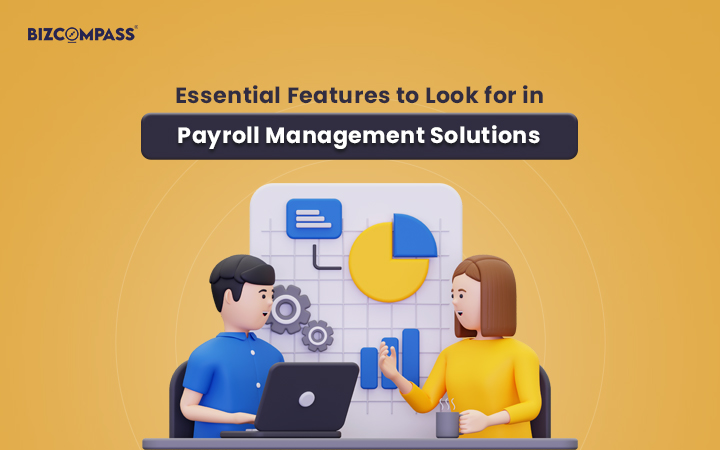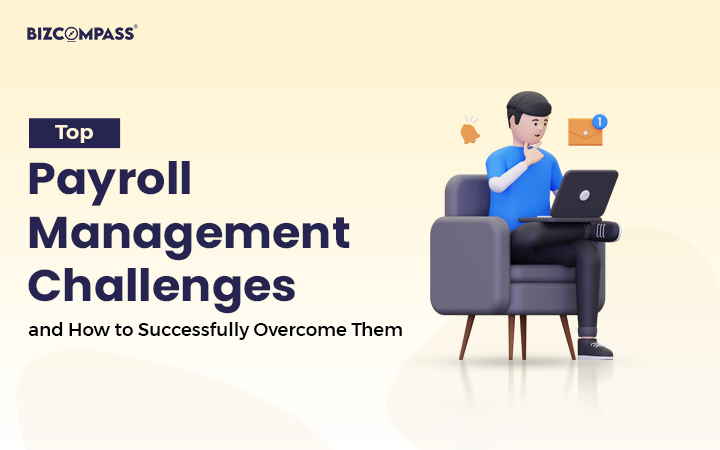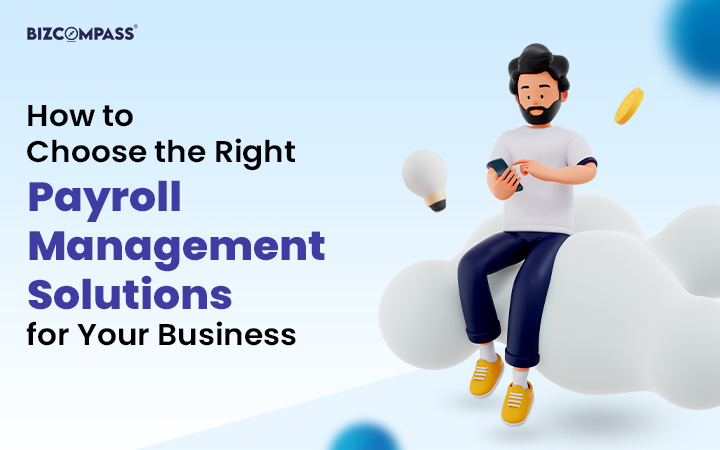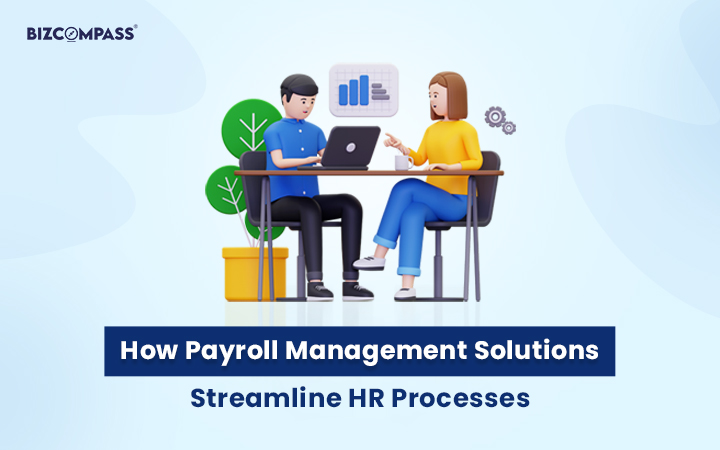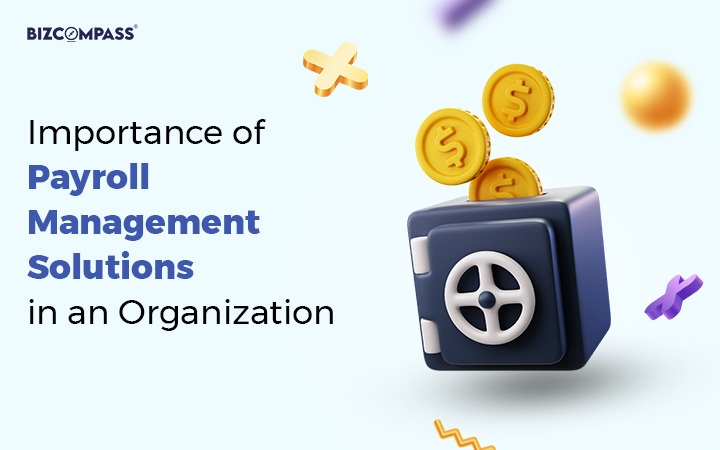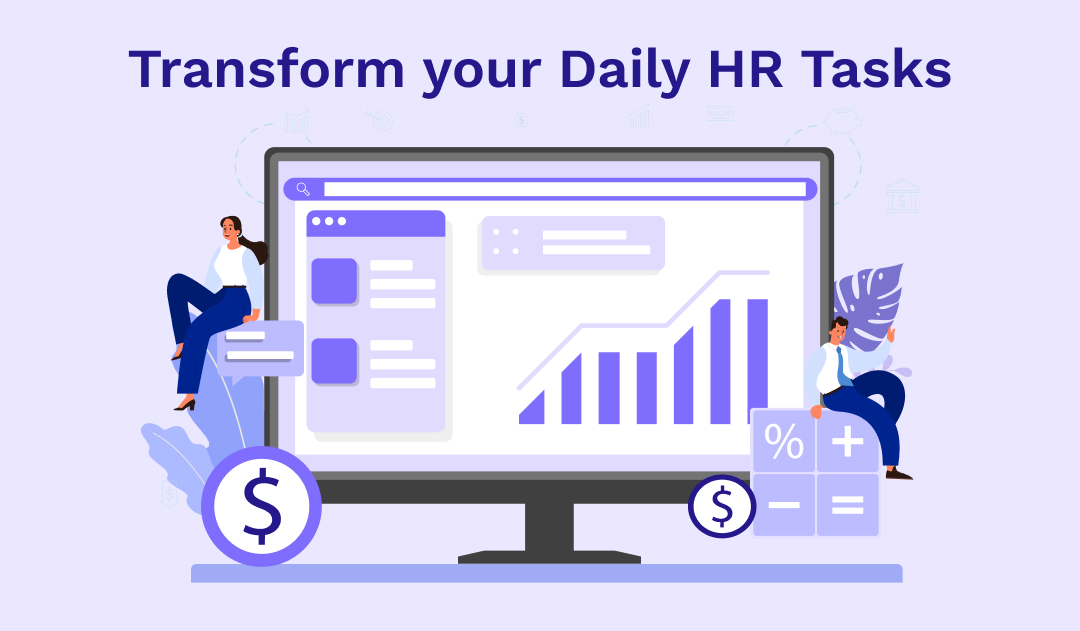Introduction
Cloud-based payroll management solutions refer to software platforms or applications that enable organizations to manage their payroll processes entirely through the cloud without the need for on-premises infrastructure. Â
These solutions typically encompass a range of functionalities, including employee data management, payroll processing, tax calculations, direct deposit, and reporting. Â
By leveraging cloud technology, these solutions offer scalability, flexibility, and accessibility to users from anywhere with an internet connection. Â
Users can securely access and manage payroll data, generate reports, and facilitate payroll tasks remotely, which streamlines processes and enhances efficiency. Â
In recent years, cloud-based solutions have gained significant traction across various industries due to their numerous advantages over traditional on-premises software. Â
Organizations are increasingly adopting cloud-based solutions for their scalability, cost-effectiveness, ease of implementation, and flexibility. Â
In the context of payroll management, businesses of all sizes are turning to cloud-based solutions to streamline their payroll processes and improve operational efficiency. Â
One key driver of the increasing popularity of cloud-based solutions is the growing emphasis on remote work and distributed teams. Â
With cloud-based payroll management solutions, organizations can easily manage payroll tasks for employees working from different locations, ensuring timely and accurate processing regardless of geographical barriers. Â
Furthermore, the scalability of cloud-based solutions allows organizations to adapt to changing business needs more efficiently. Â
Whether a company is scaling up its workforce or expanding its operations globally, cloud-based payroll management solutions can accommodate these changes without requiring significant investments in additional infrastructure or resources. Â
Additionally, the cost-effectiveness of cloud-based solutions appeals to organizations seeking to optimize their operational expenses. Â
By eliminating the need for on-premises hardware and maintenance costs associated with traditional software, cloud-based payroll management solutions offer a more affordable alternative for businesses of all sizes. Â
The increasing popularity of cloud-based solutions across various industries underscores the transformative impact of cloud technology on modern business operations, including payroll management. As organizations continue to prioritize agility, efficiency, and cost-effectiveness, the adoption of cloud-based payroll management solutions is expected to continue growing.Â
01 Efficiency and Accessibility
Cloud-based payroll management solutions offer real-time access to payroll data from anywhere with an internet connection, enabling employees and administrators to access critical information at their convenience. Â
This accessibility facilitates timely decision-making and ensures that payroll tasks can be completed promptly, even when individuals are working remotely or traveling. Â
They streamline processes for payroll administrators by automating repetitive tasks such as data entry, calculations, and reporting. Â
These solutions often feature intuitive user interfaces and customizable workflows, enabling administrators to manage payroll processes efficiently without extensive manual intervention. Â
By streamlining administrative tasks, cloud-based solutions free up time for administrators to focus on more strategic aspects of payroll management, such as employee engagement. Â
Cloud-based payroll management solutions reduce manual tasks and human errors by automating calculations, tax deductions, and compliance requirements. Â
By digitizing payroll processes and centralizing data in the cloud, these solutions minimize the risk of errors associated with manual data entry and calculation. Â
Additionally, cloud-based solutions often incorporate built-in validation checks and error alerts, helping to ensure accuracy and compliance with regulations. Â
Overall, the automation and error-reduction features of cloud-based payroll solutions contribute to greater efficiency and accuracy in payroll management.Â
02 Cost Savings
Cloud-based payroll management solutions eliminate the need for on-premises infrastructure, such as servers and hardware, which are typically required for traditional payroll systems. Â
By leveraging cloud infrastructure, organizations can avoid significant upfront capital expenditures and ongoing maintenance costs associated with maintaining physical hardware. Â
Many cloud-based payroll solutions offer flexible pay-as-you-go pricing models, allowing organizations to pay only for the services and features they use. Â
This eliminates the need for significant upfront investments in software licenses and allows businesses to scale their payroll management expenses according to their needs and budgets. Â
With cloud-based payroll solutions, organizations can significantly reduce their reliance on internal IT support and maintenance resources. Â
Cloud providers handle the maintenance and updates of the software and infrastructure, reducing the burden on internal IT teams and associated expenses related to system upkeep.Â
03 Enhanced Security
Cloud-based payroll management solutions utilize advanced encryption techniques to secure sensitive payroll data during transmission and storage. Â
Data encryption ensures that information is scrambled into unreadable formats, making it inaccessible to unauthorized parties. Â
Additionally, cloud providers employ robust security measures to safeguard data stored in their data centers, including firewalls, intrusion detection systems, and physical security measures. Â
They offer role-based access control, allowing organizations to define access levels and permissions for different users based on their roles and responsibilities. This ensures that only authorized personnel can access sensitive payroll data, minimizing the risk of data breaches. Â
Audit trails track user activities within the system, providing a detailed record of who accessed what information and when, which helps organizations monitor any suspicious activities. Â
Cloud-based payroll solutions adhere to stringent data protection regulations and compliance standards, ensuring that payroll data is handled and stored under legal requirements. Â
Cloud providers implement security measures and undergo regular audits and certifications to demonstrate compliance with industry standards, giving organizations peace of mind regarding the protection of their payroll data.Â
04 Scalability
Cloud-based payroll management solutions offer scalability, allowing organizations to easily adjust their payroll operations to accommodate changes in business size or structure.
Whether scaling up due to business growth or downsizing due to restructuring, cloud-based solutions can seamlessly adapt to meet evolving payroll needs without requiring significant investments in additional infrastructure or resources.Â
They provide flexibility to add or remove features as needed, enabling organizations to tailor their payroll management systems to their specific requirements.Â
This flexibility allows businesses to scale their payroll capabilities according to changing business needs, adding new features or functionalities to enhance efficiency and meet evolving compliance requirements. Cloud-based payroll solutions often offer integration capabilities with other HR and accounting software systems.Â
This integration allows organizations to streamline processes by syncing payroll data with other business systems, such as human resource management software and accounting platforms. Â
By integrating payroll with other software applications, organizations can improve data accuracy, streamline workflows, and gain deeper insights into their overall business operations.Â
05 Employee Self-Service
Cloud-based payroll management solutions offer employee self-service portals, providing employees with convenient access to their pay stubs, tax forms, and other relevant documents. Â Â
By accessing these documents online through the self-service portal, employees can conveniently retrieve and review their payroll-related information at any time, eliminating the need for manual distribution or retrieval of physical documents. Â
Employee self-service portals empower employees to update their personal information, such as contact details, tax withholding preferences, and direct deposit details, directly within the payroll system. This capability streamlines administrative processes by allowing employees to manage their information, reducing the burden on HR and payroll administrators. Â
By providing access to self-service portals, cloud-based payroll solutions empower employees to manage various payroll-related tasks independently, such as viewing pay statements, updating personal information, and accessing tax documents. Â
This self-service functionality enhances employee satisfaction and engagement by giving them greater control and convenience over their payroll-related tasks. It reduces dependency on HR and payroll departments for routine inquiries and updates.Â
06 Compliance and Reporting
Cloud-based payroll management solutions automate tax calculations and filings, ensuring accuracy and compliance with tax laws and regulations.Â
These solutions leverage built-in tax tables and algorithms to calculate payroll taxes accurately based on employee wages, deductions, and withholding allowances.Â
Additionally, they generate and submit tax forms, such as W-2s and 1099s, to tax authorities electronically, streamlining the tax filing process and reducing the risk of errors.Â
These solutions regularly update their software to comply with changing regulations and tax laws. Updates may include adjustments to tax rates, withholding tables, and reporting requirements to ensure that payroll processes remain compliant with the regulatory changes.Â
By staying up-to-date with regulatory updates, organizations can avoid penalties and fines associated with non-compliance. It generates accurate reports for audits and financial analysis, providing organizations with detailed insights into their payroll expenses and compliance status. Â
These reports include payroll summaries, tax filings, and audit trails, enabling organizations to demonstrate compliance during audits and perform financial analysis to optimize expenses.Â
07 Disaster Recovery and Business Continuity
Cloud-based payroll management solutions implement robust data backup and redundancy measures to ensure the safety and availability of payroll data in the event of a disaster.Â
These measures include regular backups of payroll data to multiple geographically dispersed locations and redundant storage systems to minimize the risk of data loss.Â
The solutions are designed to minimize downtime during unexpected events, such as natural disasters or system failures. By leveraging redundant infrastructure and failover mechanisms, these solutions ensure the continuous availability of payroll services, allowing organizations to maintain payroll operations without significant interruptions or delays.Â
Cloud-based payroll solutions provide organizations with peace of mind, knowing that their payroll data is secure and accessible in any situation.Â
With data stored in the cloud, organizations can access payroll information remotely from any location with an internet connection, ensuring business continuity even during emergencies or disruptions to normal operations.Â
Additionally, the implementation of stringent security measures and compliance with industry standards further enhances the security and accessibility of payroll data, instilling confidence in organizations regarding the protection of their critical payroll information.Â
Conclusion
To wrap it up, we've explored the numerous benefits of cloud-based payroll management solutions. These include efficiency and accessibility through real-time data access, streamlined processes, and reduced manual tasks. We've discussed cost savings through the elimination of infrastructure costs and pay-as-you-go pricing models. Â
Enhanced security features such as data encryption, role-based access control, and compliance with regulations were also highlighted, along with scalability and the empowerment of employees through self-service capabilities. Â
Furthermore, we examined how these solutions ensure compliance and reporting accuracy, as well as disaster recovery and business continuity measures. Â
Cloud-based payroll management solutions have the transformative potential to revolutionize how organizations manage their payroll processes. Â
By leveraging advanced technology, these solutions offer unparalleled efficiency, scalability, security, and accessibility, enabling businesses to streamline operations and drive growth. Â
In light of these benefits, we encourage businesses to explore and adopt cloud-based payroll management solutions to enhance their efficiency, competitiveness, and overall success. Â
By embracing these innovative solutions, organizations can unlock new growth opportunities, streamline operations, and stay ahead in today's dynamic business landscape. Â
If you are looking for a cloud-based payroll management solution, check out Bizcompass right away. It's the ideal system for all types of businesses, be it big or small.Â

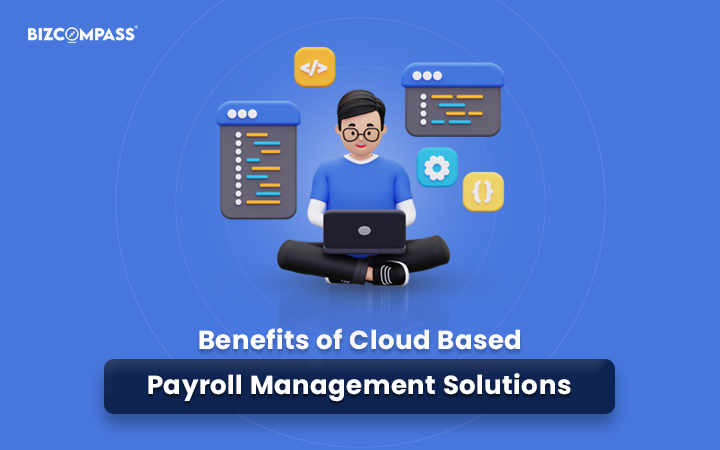
 >
>
